As the number of COVID-19 cases in Manitoba rose steadily through the fall, support for the governing Progressive Conservative government fell almost as sharply, a new Probe Research poll conducted for the Winnipeg Free Press finds.
The results show the opposition New Democratic Party (NDP) now has the highest level of support in the province for the first time since the party lost power in the 2016 provincial election. Four-in-ten decided and leaning voters now say they would vote for an NDP candidate in a hypothetical provincial election (41%, up from 34% in September). Support for the PCs decreased by nearly the same margin, with the party sitting at 37 per cent today (-6% vs. September). Support for the Manitoba Liberals sits at 14 per cent (-2% vs. September), with the provincial Greens at six per cent (+1%). Fifteen per cent of all Manitobans surveyed are undecided.
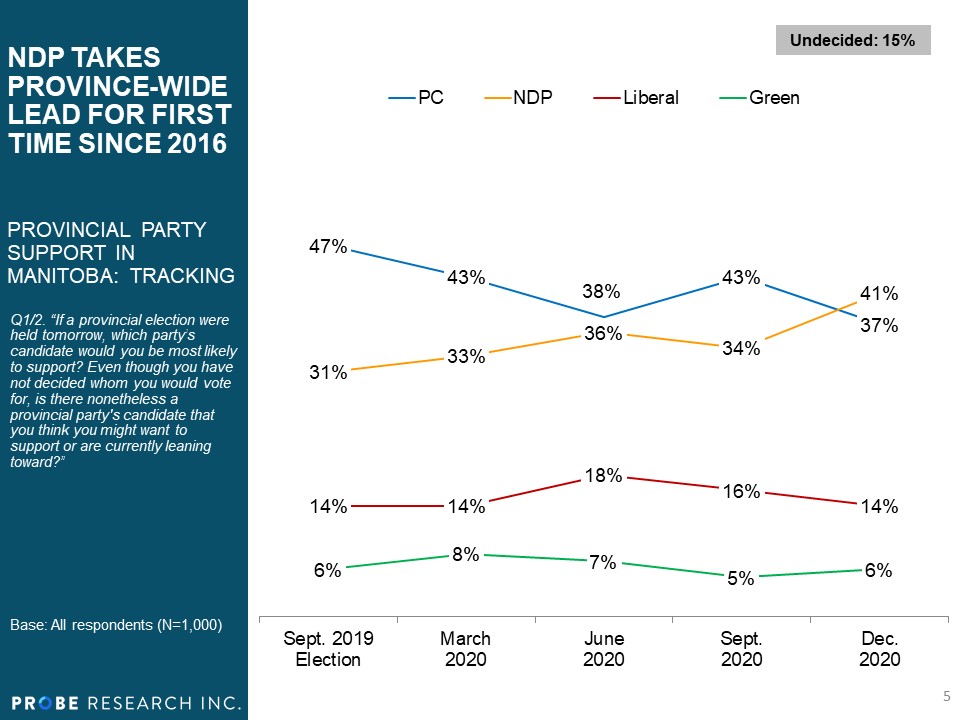
Support for the NDP is driven by significant increases among two of its key constituencies: Winnipeg voters and women.
Currently, nearly one-half of Winnipeg voters would cast ballots for the NDP (46%, up from 40% in September). Nearly all these NDP gains in Winnipeg come at the expense of the provincial Liberals (17%, down from 22%). Support for the PCs is slightly lower in Winnipeg compared to three months ago (30%, down from 32%). The NDP holds a massive lead over its opponents in the Core area, significant leads in northwest and northeast Winnipeg and is statistically tied with the PCs in the battleground southwest and southeast quadrants.
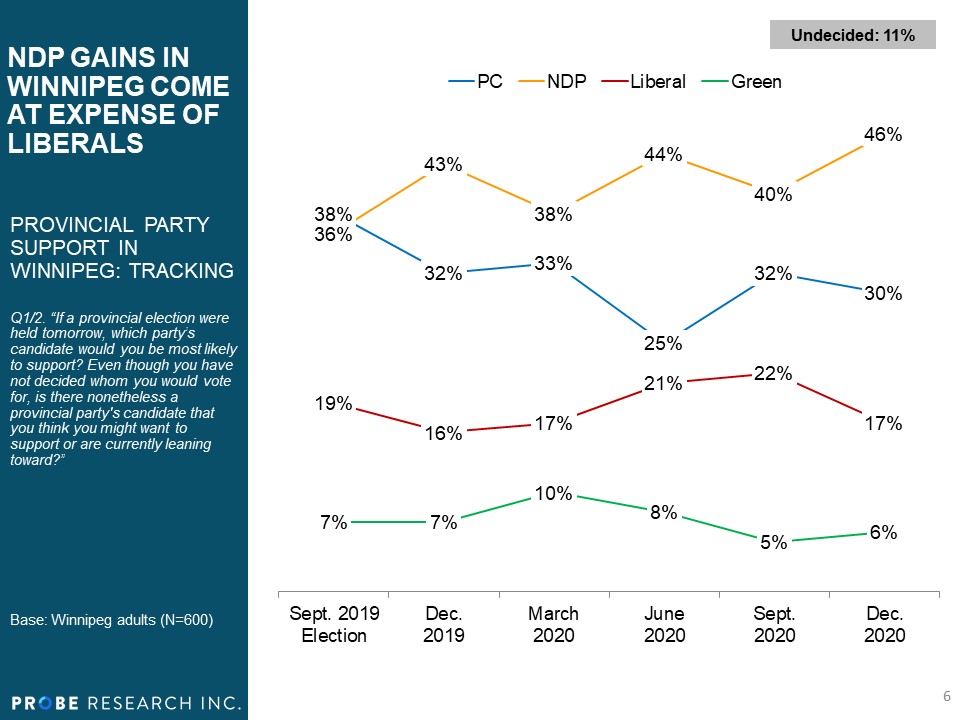
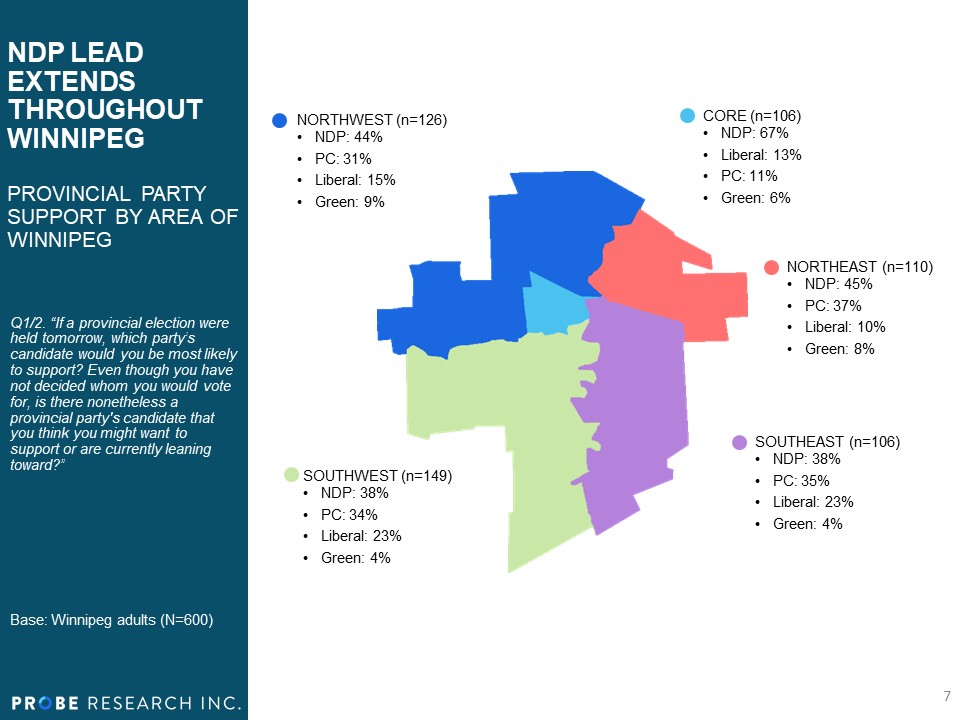
The PCs have lost a significant chunk of female support in Manitoba, with its support among women dropping from 37 per cent in September to 29 per cent today. Meanwhile, support for the NDP has increased from 38 per cent to 45 per cent among women during the past three months. The NDP has also made modest gains among men (35%, up from 29%). However, nearly one-half of male voters still prefer the PCs (46%, down from 48%).
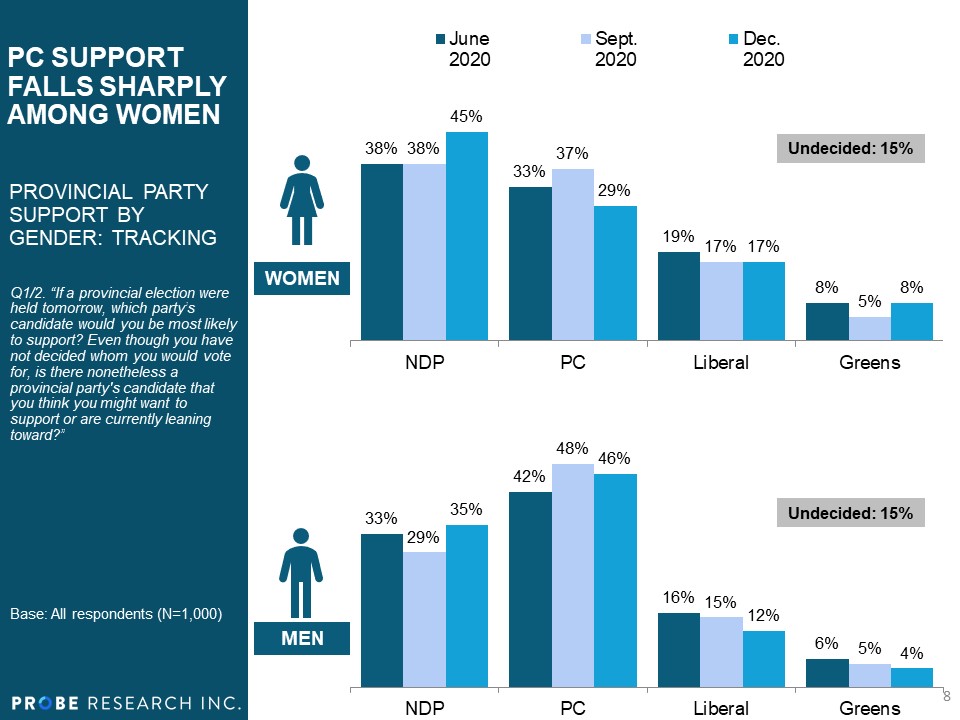
PC support continues to be higher among older Manitobans aged 55+ (47% vs. 35% NDP) but the NDP now leads among those aged 35-54 (41% vs. 34%) and 18-34 (43% vs. 33%). The NDP also continues to have significantly higher support among those with a university degree and among Indigenous Manitobans.
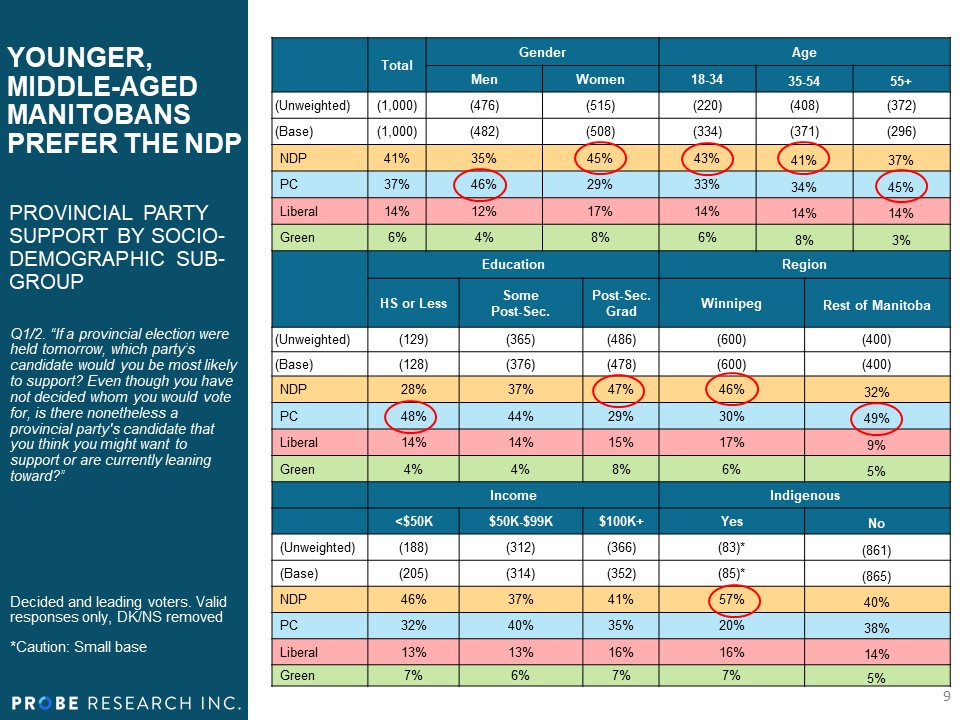
About the Probe Research Omnibus
For more than two decades, Probe Research Inc. has undertaken quarterly omnibus surveys of random and representative samples of Manitoba adults. These scientific telephone surveys have provided strategic and proprietary insights to hundreds of public, private and not-for-profit clients on a range of social, cultural and public policy topics. The Probe Research Omnibus Survey is the province’s largest and most trusted general population survey.
Disclosure Statement
Probe Research is a member of the Canadian Research Insights Council (CRIC) and confirms that this research fully complies with all CRIC Standards including the CRIC Public Opinion Research Standards and Disclosure Requirements. Learn more at: https://www.canadianresearchinsightscouncil.ca/standards/por/
Methodology
Probe Research surveyed a random and representative sampling of 1,000 adults residing in Manitoba between November 24th and December 4th, 2020.
With a sample of 1,000, one can say with 95 percent certainty that the results are within ± 3.1 percentage points of what they would have been if the entire adult population of Manitoba had been surveyed. The margin of error is higher within each of the survey’s population sub-groups.
Modified random digit dialing, including both landline and wireless numbers, ensured all Manitoba adults had an equal opportunity to participate in this Probe Research survey. A CATI-to-web approach was employed whereby a live-voice operator randomly recruited respondents by telephone, inviting them to complete the survey via a secure online questionnaire. In addition, 277 randomly recruited Probe Research panel members were included in this general population adult sampling.
Minor statistical weighting has been applied to this sample based on known age, gender and previous provincial voting patterns of the province’s population. All data analysis was performed using SPSS statistical analysis software.




